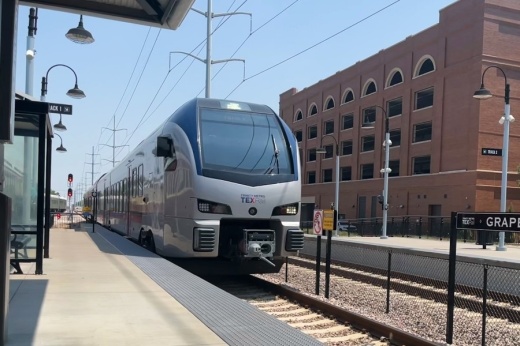What’s happening?
The NCTCOG will pay McKinsey and Company and InfraStrategies about $2.2 million to examine potential transportation investments and develop a regional transit plan through 2050. The “Regional Transit 2.0” study includes seven distinct project tasks:
- Develop a transit legislative program
- Develop strategies to increase transit authority membership
- Develop collaborations between existing transit authorities
- Develop strategies for authority board partnerships and teamwork
- Develop Strategies for infill development
- Review fare-collection strategies
- Develop recommendations for the transit authority-member city paradox
Some context
The 12-county metropolitan area served by the NCTCOG is projected to grow to more than 11 million people by 2045. Much of the population growth is expected to happen outside existing transit authority service areas, according to the news release.Regional Transit 2.0 will aim to promote increased membership and collaboration between transportation authorities while addressing regional transit needs, according to the Executive Board’s agenda.
Quote of note
“Our expansive growth gives us an opportunity to broaden our approach to moving people, NCTCOG Transportation Director Michael Morris said in a statement. “Through close coordination, [DFW] has established a world-class transportation system that gives residents multiple options for how to move around the region. [Regional] Transit 2.0 can ensure as we continue to grow in the coming decades, we are safely and efficiently connecting people to where they live, work and play.”
Diving in deeper
Mayors from 12 north Texas cities including Plano, Coppell and McKinney sent a letter of support for the initiative to the Regional Transportation Council in 2023. The letter stated that a comprehensive study is needed to assess the effectiveness of regional transit today and how it should look in the future.
The letter calls for the study to address several key points including:
- Analysis of needs for different service types
- Costs of agencies and potential efficiencies
- Membership categories and options
- Revenue commitments/contributions
- State of Texas ferry allocation
- Fares and revenue recovery philosophies
- Barriers to system growth
Three transit authorities operate in DFW: Dallas Area Rapid Transit, the Denton County Transportation Authority and Trinity Metro.
DART’s member cities, including Plano and Richardson, pay a one-cent sales tax to participate with the transit authority. Highland Village, Lewisville and Denton pay a half-cent sales tax to the DCTA. Fort Worth and Blue Mound pay a half-cent sales tax to Trinity Metro.
Grapevine pays three-eighths of a cent to support the TEXRail commuter rail service.





